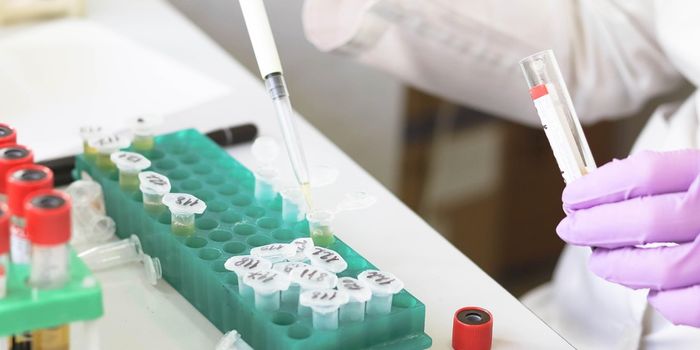FDA Warns About Too Much Vitamin B
Biotin may be good for shiny nails and luscious hair, but too much of it can mess with your medical tests.
Nearly half of American adults take some form of daily vitamin. The market is saturated with a dizzying selection of brands and formats, all competing for the estimated $12 billion that consumers spend every year on multivitamins. Among these, over-the-counter vitamins that promise to improve the growth and appearance of hair, skin, and nails, are widely popular. Indeed, Nature’s Bounty, a vitamin manufacturing giant, developed a formula called Hair Skin and Nails, for this specific purpose. The formula contains a whopping 5,000 micrograms of biotin, or 1667 percent of the daily value!
And as it turns out, you definitely can have too much of a good thing. In the case of biotin, also known as vitamin B7 or vitamin H, too much can screw up a person’s medical tests.
According to the Food and Drug Administration (FDA) who issued a statement regarding excessive biotin consumption, “…patients who are ingesting high levels of biotin in dietary supplements can cause clinically significant incorrect lab test results.”
While faulty lab tests may not seem significant, the ramifications of misleading results can contribute to a host of complications afterwards. In one instance, the FDA noted that faulty tests results likely contributed to a patient dying of a heart attack. The patient, who was taking high levels of biotin, showed low levels of troponin on his labs. Troponin is a critical biomarker that predicts heart attacks. Because the biotin was falsely lowering the troponin biomarker in the patients, his heart attack was not caught in time.
In addition to that tragic case, the FDA also cited an increase in the misdiagnosis and mismanagement of patient care, due to biotin-related obfuscated lab results. “The FDA has seen an increase in the number of reported adverse events, including one death, related to biotin interference with lab tests,” the report stated.
So what is the safe limit for biotin? According to the Institute of Medicine, just 30 micrograms a day is sufficient. Note that this recommendation is over 166 times less than what’s in one of the Hair Skin and Nails pills. Even worse, the FDA cited some supplements that contain over 650 times the daily recommended amount.
The moral of the story? Always check the supplement table and understand exactly what you’re putting into your body, and how much. And when in doubt, always consult with a physician about any dietary changes – just because a product is available over the counter doesn’t always mean it’s without risks.
Additional sources: Live Science









